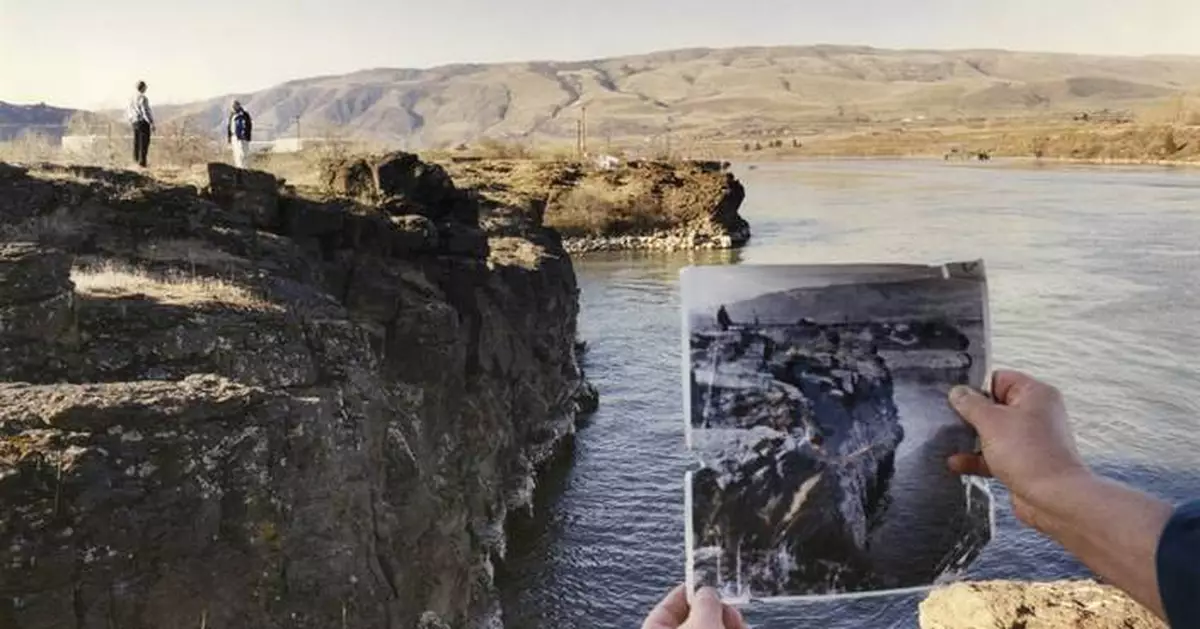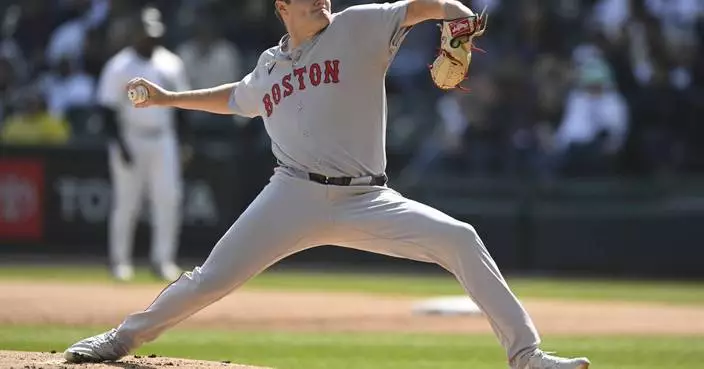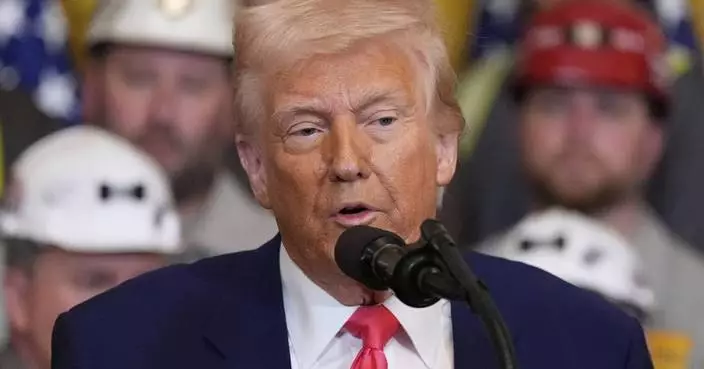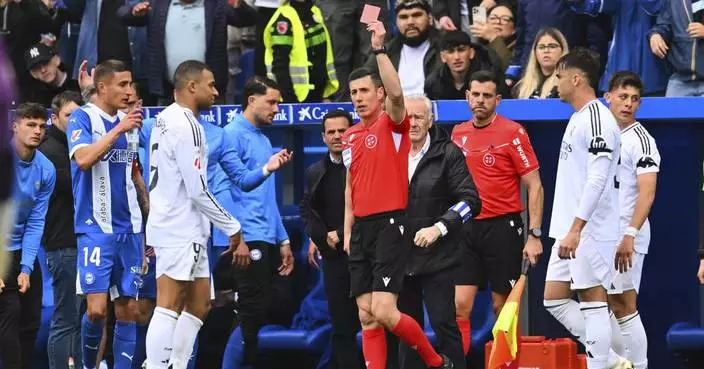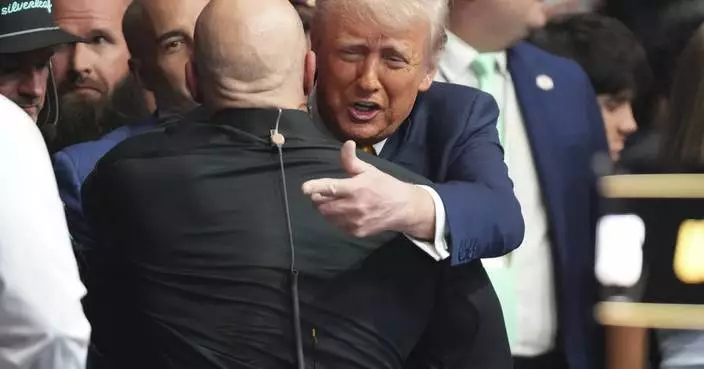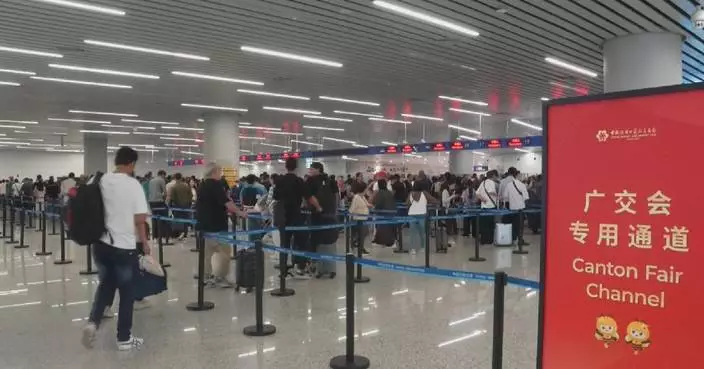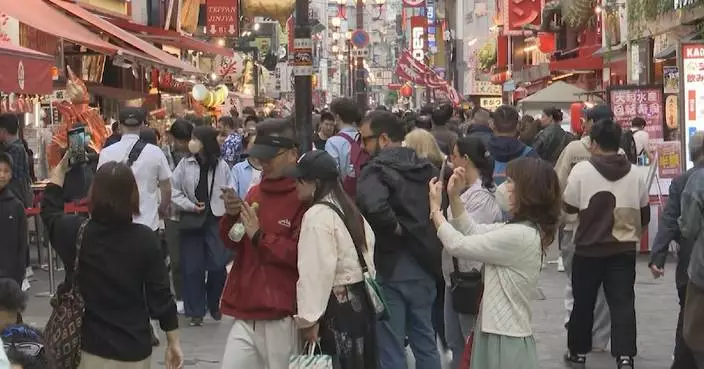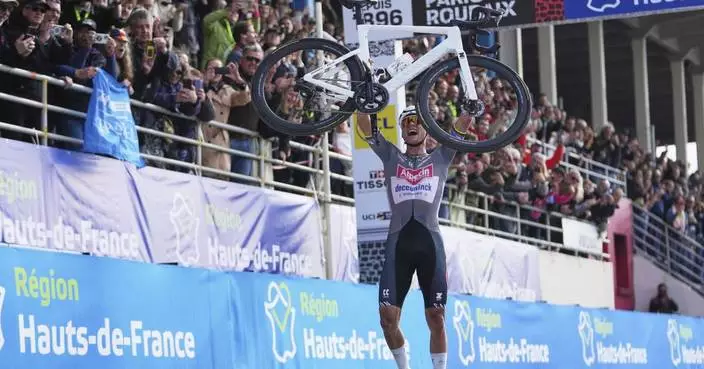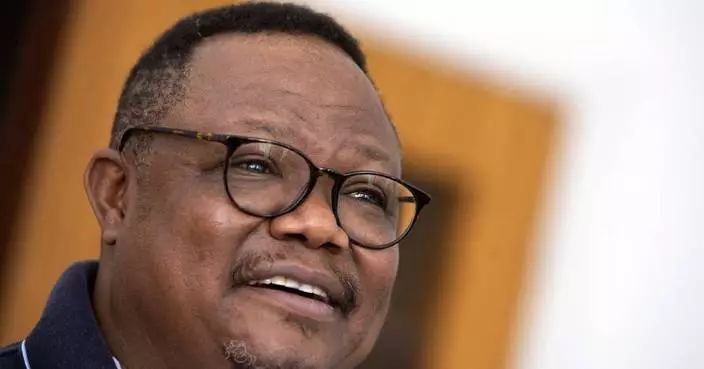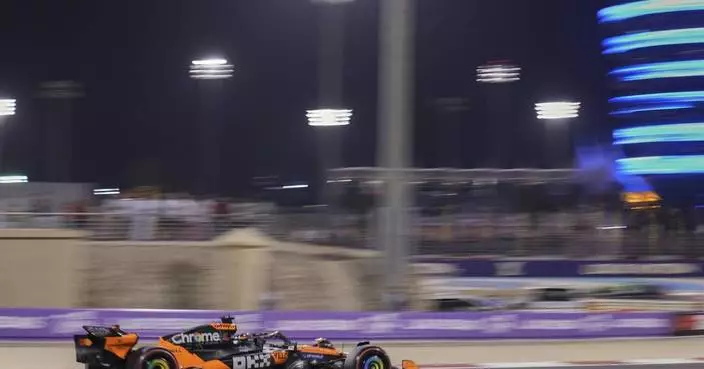Authorities will try again Friday to pull a station wagon from the Columbia River that's believed to have belonged to an Oregon family of five who disappeared nearly 70 years ago while they were out searching for Christmas greenery.
The search for the Martin family was a national news story at the time and led some to speculate about the possibility of foul play, with a $1,000 reward offered for information about their whereabouts.
Salvage efforts were called off just before dark on Thursday and authorities said they could not provide a timetable for the removal of the car.
The station wagon thought to belong to Ken and Barbara Martin was found last fall by Archer Mayo, a diver who had been looking for it for seven years, said Mayo’s representative, Ian Costello. Mayo pinpointed the likely location and dove several times before finding the car upside-down about 50 feet (15 meters) deep, covered in mud, salmon guts, silt and mussel shells, said Costello, who announced the find Wednesday.
“This is a very big development in a case that’s been on the back of Portland’s mind for 66 years,” Costello told The Associated Press.
Mayo found other cars nearby, which will need to come out before the station wagon can be pulled from the river, Costello said. Pete Hughes, a Hood River County sheriff’s deputy, said one car had been previously identified and the second was an unknown Volkswagen.
“We don't know what we will find,” Hughes said when asked if officials thought bodies were inside the cars.
The Martins took their daughters Barbara, 14, Virginia, 13, and Sue, 11, on a ride to the mountains on Dec. 7, 1958, to collect Christmas greenery, according to AP stories from the time. They never returned. Officials narrowed their search for the family after learning that Ken Martin had used a credit card to buy gas at a station near Cascade Locks, a small Columbia River community about 40 miles (64 kilometers) east of Portland.
“Police have speculated that Martin's red and white station wagon might have plunged into an isolated canyon or river,” the AP reported. “The credit card purchase was the only thing to pin-point the family's movements.”
Five months after their disappearance, the body of the youngest daughter was found “bobbing in a Columbia River slough,” according to the AP. “The body of Susan apparently floated free of the wreckage in the spring current and was washed to a back water slough near Camas, Washington," the AP wrote.
Virginia Martin's body was found the next day about 25 miles (40 kilometers) upstream from where her sister's was located. The other family members were never found, but the search continued.
The Martins had a 28-year-old son, Don, who was a Marine veteran and graduate student at Columbia University in New York at the time and told the AP he believed his family was dead.
“It's been a high public interest case,” Hughes told the AP on Thursday. After Mayo provided part of the license plate number and other vehicle identifiers, the sheriff's office and the Columbia Gorge major crimes team, along with the Oregon State Crime Lab, arranged to have the car pulled out, he said.
“We're not 100% sure it's the car,” Hughes said. “It's mostly encased in mud and debris, so we don't know what to expect when we pull it out of the water today.”
Mayo runs a business that finds things that were lost in the river, like watches and rings, but also helps with the recovery of drowning victims, Costello said. He had been looking for a research vessel that sank in 2017 when he learned about the Martin family, Costello said.
Mayo began digging up material on the family and used modeling to pinpoint the possible location, he said.
There is a road near where the cars were found underwater. Authorities haven't said whether they think they might find the remains of other missing people in any of the other vehicles being pulled from the river.
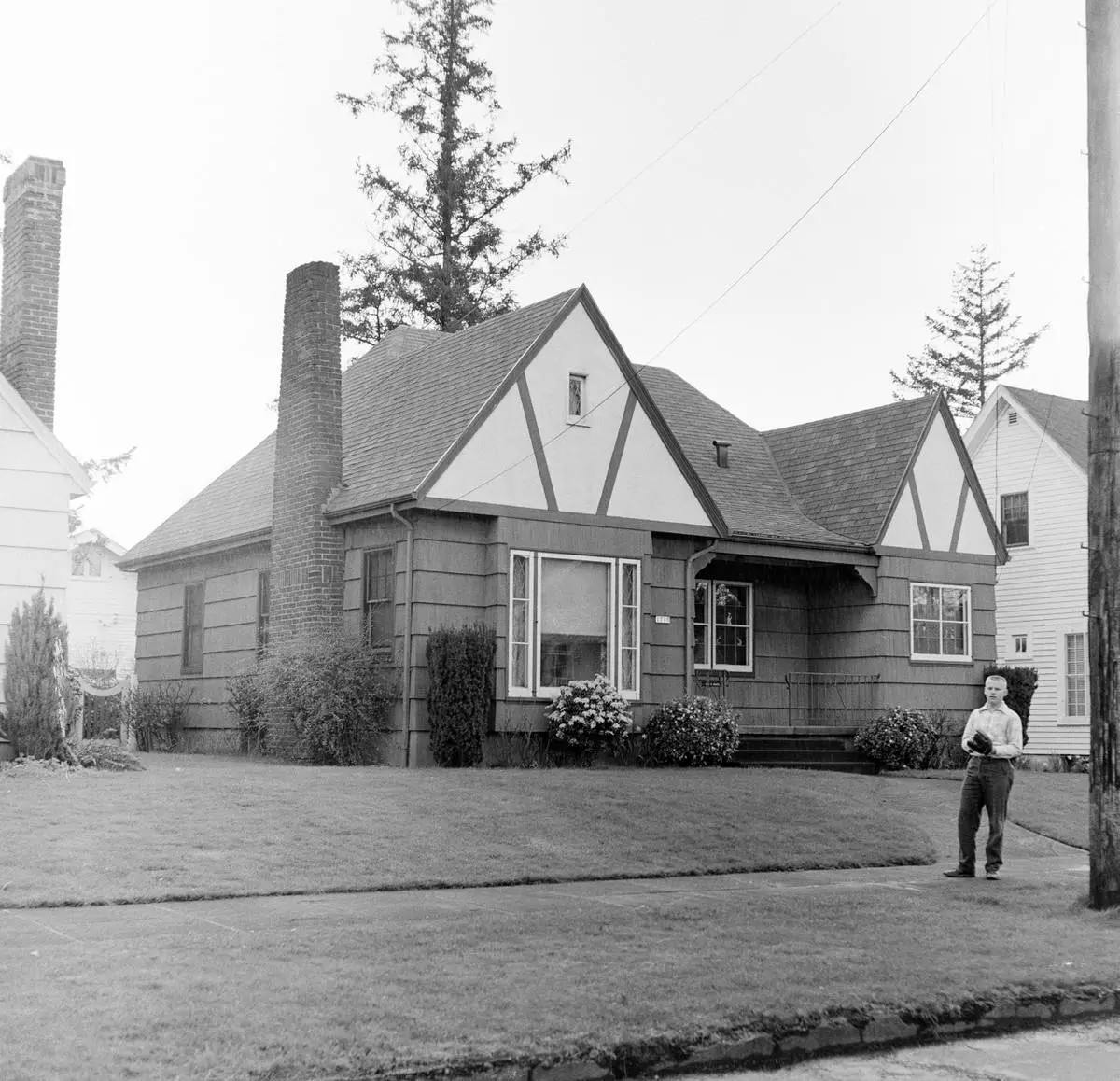
FILE - The home of the missing Ken Martin family in Portland, Ore., April 2, 1959. (AP Photo, File)
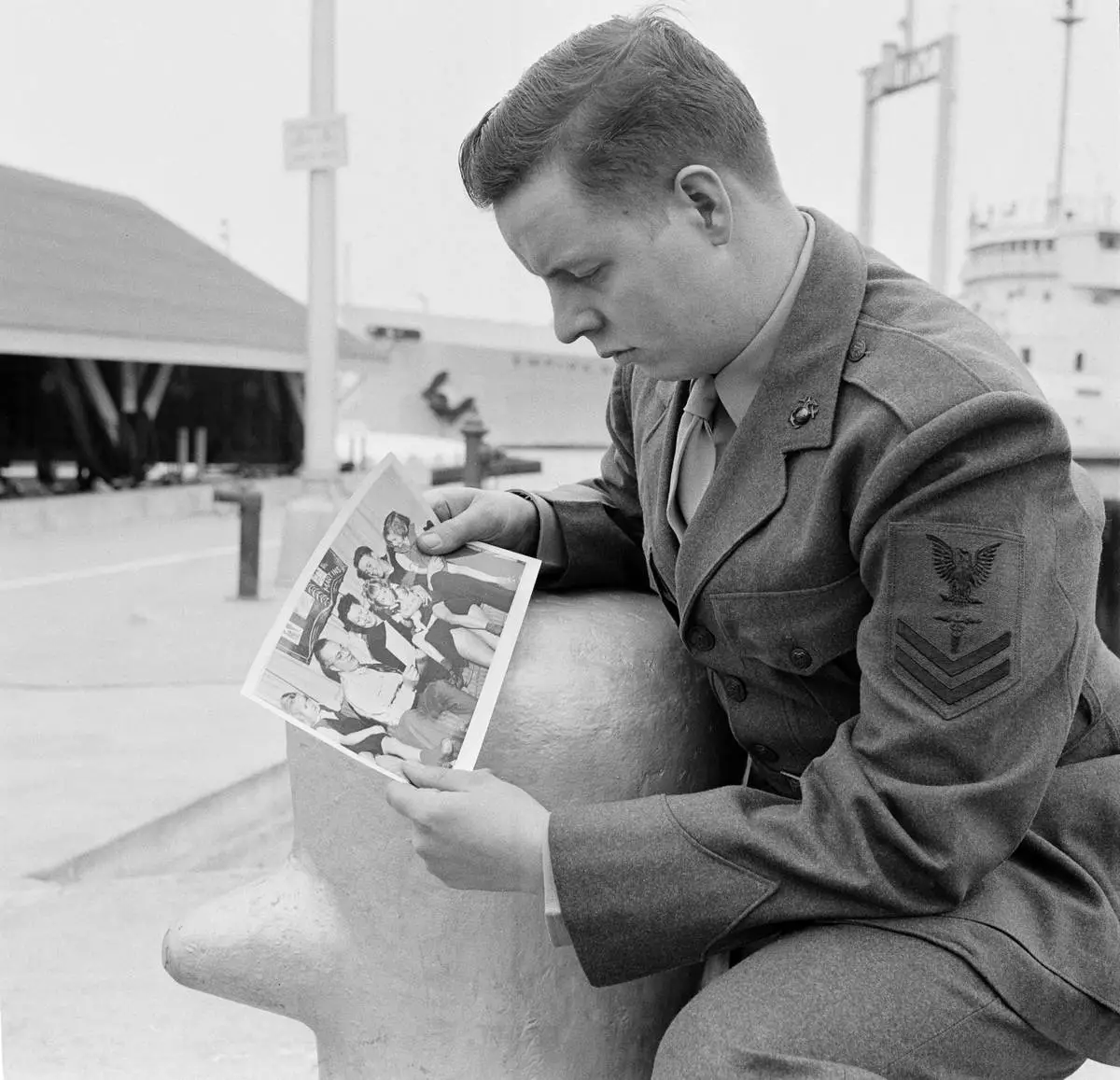
FILE - United States Navy Pharmacist's mate Donald Martin looks at a 1952 Christmas photo of his missing family at Fort Schuyler in New York, April 2, 1959. (AP Photo, File)
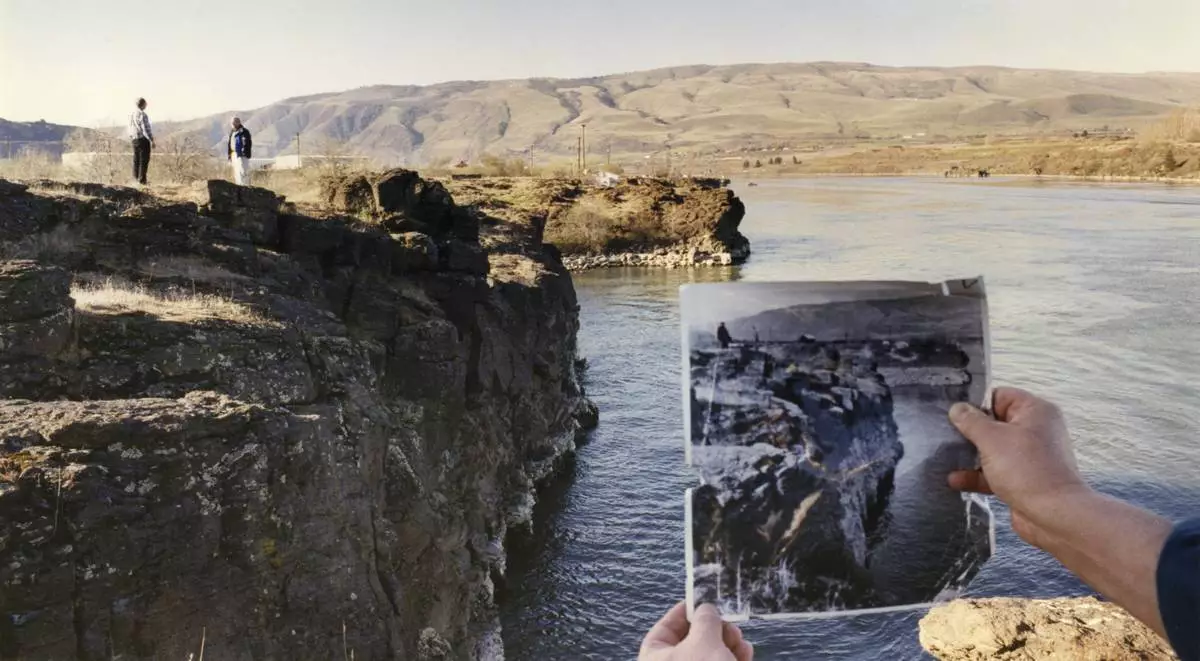
Searchers return to the spot in 1999, where they believed the Martin family may have disappeared and compared the scene with a photo of it from 1959, front. (The Oregonian via AP, file)
QUITO, Ecuador (AP) — Ecuadorians are voting Sunday in the country’s presidential election runoff, facing the choice between incumbent President Daniel Noboa and leftist lawyer Luisa González.
Noboa, a conservative young millionaire, and González have both promised voters solutions to the extortions, killings, kidnappings and other crimes that became part of everyday life as the country emerged from the pandemic. Analysts expect the result in Sunday’s vote to have a very tight margin.
It’s the second presidential runoff election in less than two years in the South American country, where voting is mandatory.
Voters chose Noboa over González in the runoff of a snap election in October 2023. The candidates advanced to Sunday’s contest after polling most votes in February’s first-round election. Noboa won 44.17% of the votes while González garnered 44%.
Voters are primarily worried about the violence that transformed the country, starting in 2021 — a spike in crime tied to the trafficking of cocaine produced in neighboring Colombia and Peru.
Both candidates have promised tough-on-crime policies, better equipment for law enforcement and international help to fight drug cartels and local criminal groups.
“My vote is clear,” said Irene Valdez, a retiree who voted for Noboa. “I want to continue living in freedom.”
Martín Constante, a 19-year-old university student, had a different view. “I think Luisa is going to change things, because Noboa has been very authoritarian,” he said. “Our country needs a lot of changes.”
More than 13 million people are eligible to vote, which is mandatory for adults up to the age of 65. It is optional for people aged 16 and 17 and over 65. Failure to vote results in a $46 fine.
In 2023, Noboa and González were largely unknown to most voters as they sought the presidency for the first time. They were first-term lawmakers in May 2023, when then-President Guillermo Lasso dissolved the National Assembly, shortening his own mandate as a result and triggering that year’s snap election.
Noboa’s first foray into politics was his stint as lawmaker. An heir to a fortune built on the banana trade, Noboa opened an event-organizing company when he was 18 and then joined his father’s Noboa Corp., where he held management positions in the shipping, logistics and commercial areas.
González, 47, held various government jobs during the presidency of Rafael Correa, who led Ecuador from 2007 through 2017 with free-spending socially conservative policies and grew increasingly authoritarian in his last years as president.
Noboa, 37, declared Ecuador to be in a state of “internal armed conflict” in January 2024, allowing him to deploy thousands of soldiers to the streets to combat gangs and to charge people with terrorism counts for alleged ties to organized crime groups.
Under his watch, the homicide rate dropped from 46.18 per 100,000 people in 2023, to 38.76 per 100,000 people in 2024. But despite the decrease, the rate remained far higher than the 6.85 homicides per 100,000 people seen in 2019.
Some of Noboa’s heavy-handed crime-fighting tactics have come under scrutiny for testing the limits of laws and norms of governing. He has also been criticized for allegations of electoral anomalies he made after February’s vote.
Following the first-round election, Noboa said there had been “many irregularities” and that in certain provinces “there were things that didn’t add up.” He provided no further details or evidence. Electoral observers from the Organization of American States and the European Union ruled out fraud.
Garcia Cano reported from Mexico City.
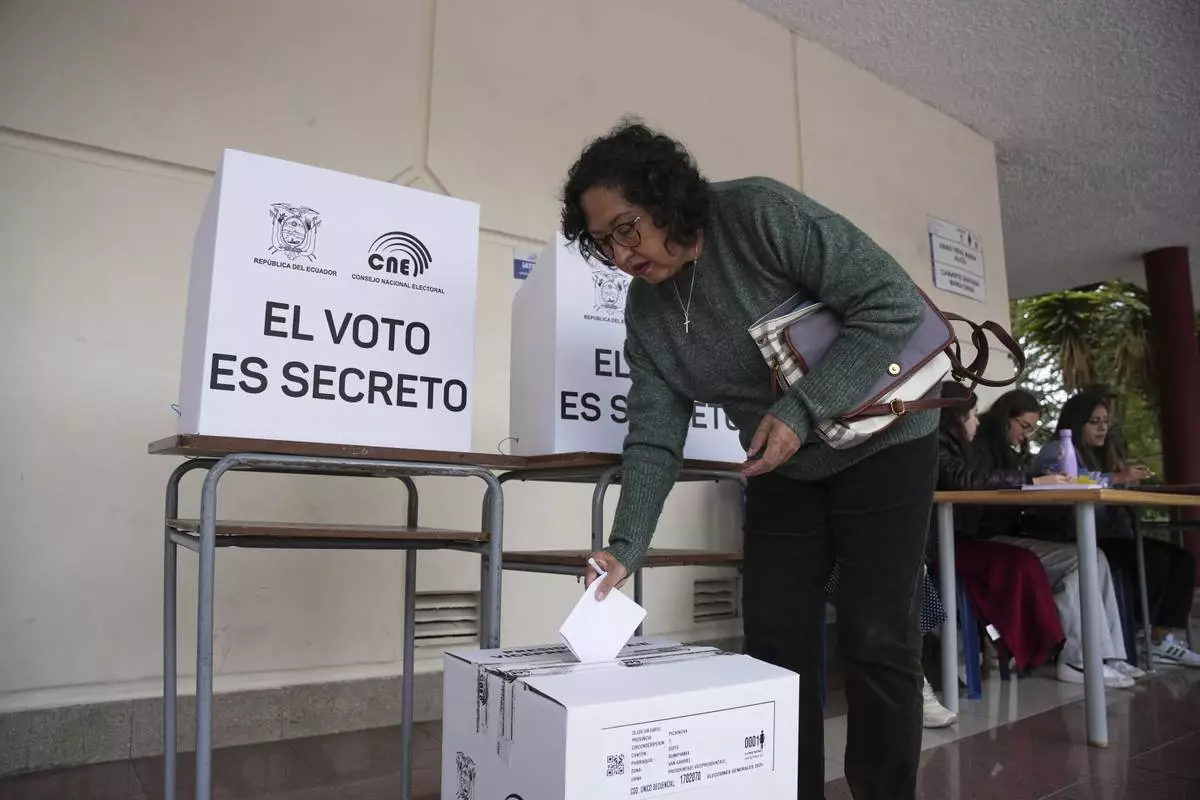
A voter casts her ballot during the presidential election runoff in Quito, Ecuador, Sunday, April 13, 2025. (AP Photo/Carlos Noriega)
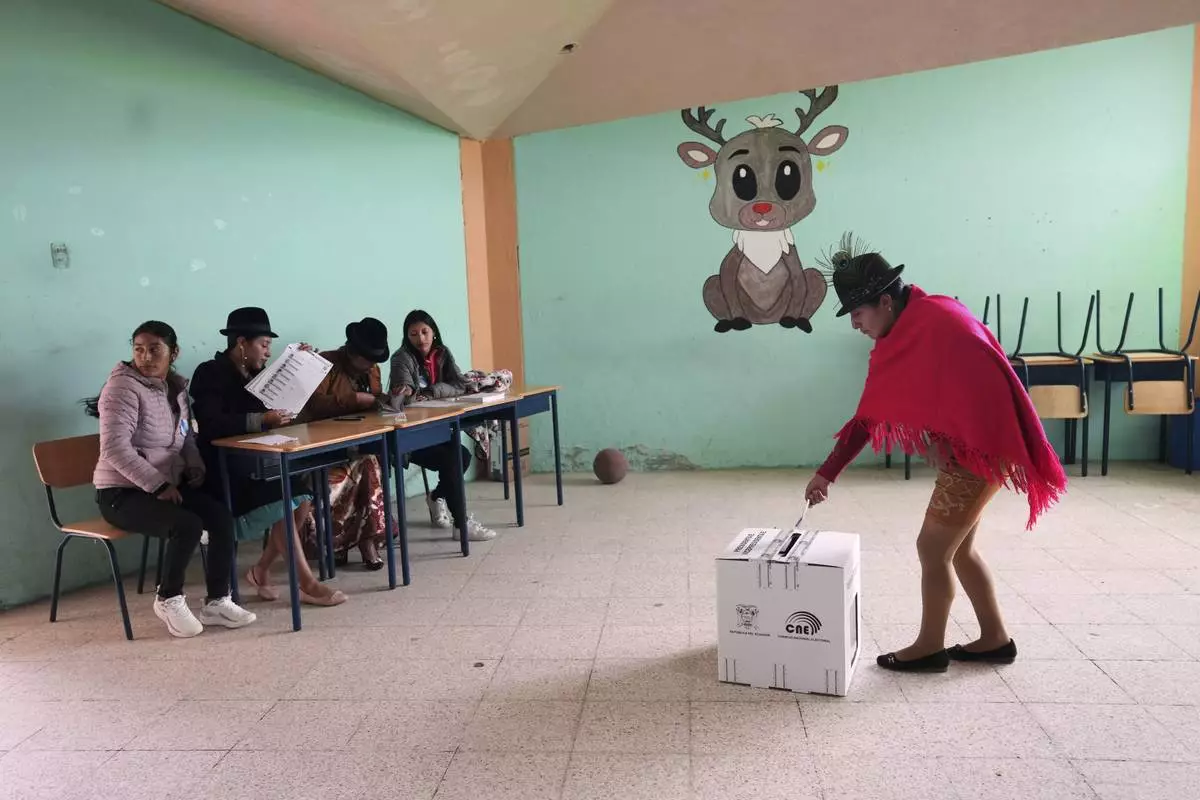
A voter casts her ballot in the presidential election runoff in Pujili, Ecuador, Sunday, April 13, 2025. (AP Photo/Dolores Ochoa)
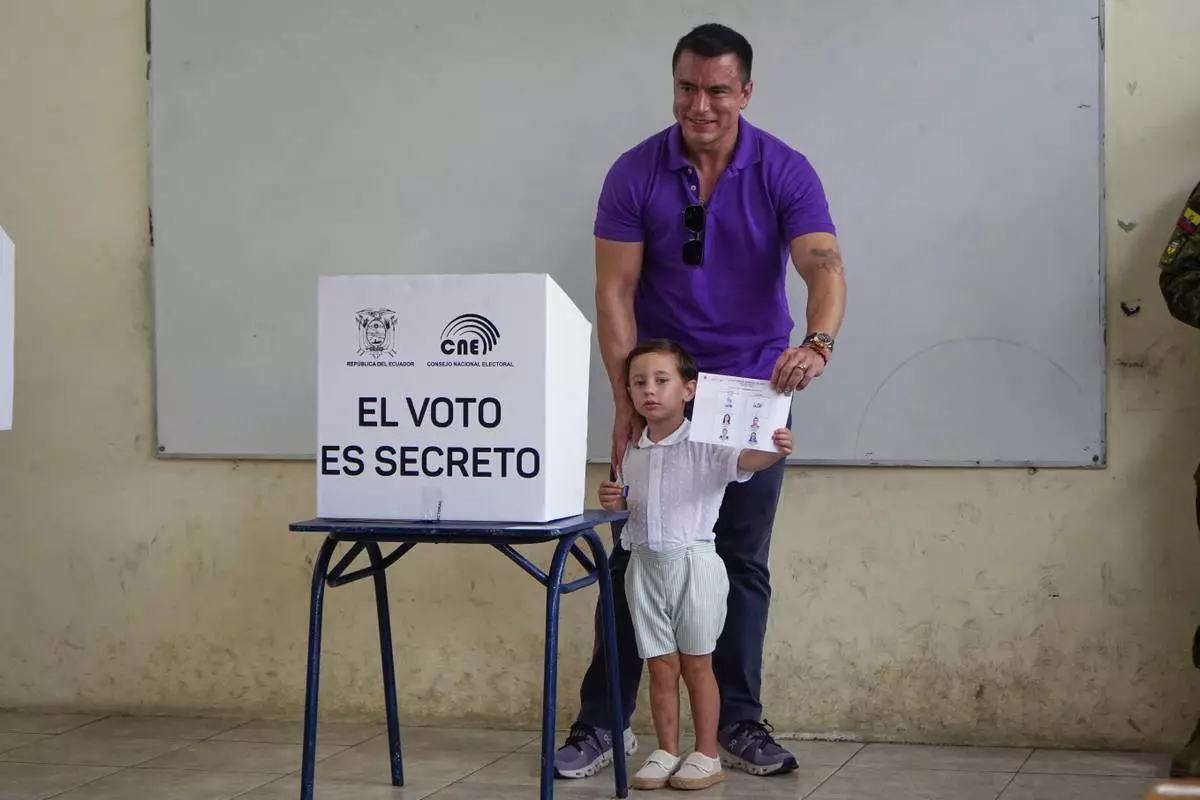
Incumbent President Daniel Noboa shows his ballot casts before voting, accompanied by his children, in the presidential election runoff in Olon, Ecuador, Sunday, April 13, 2025. (AP Photo)
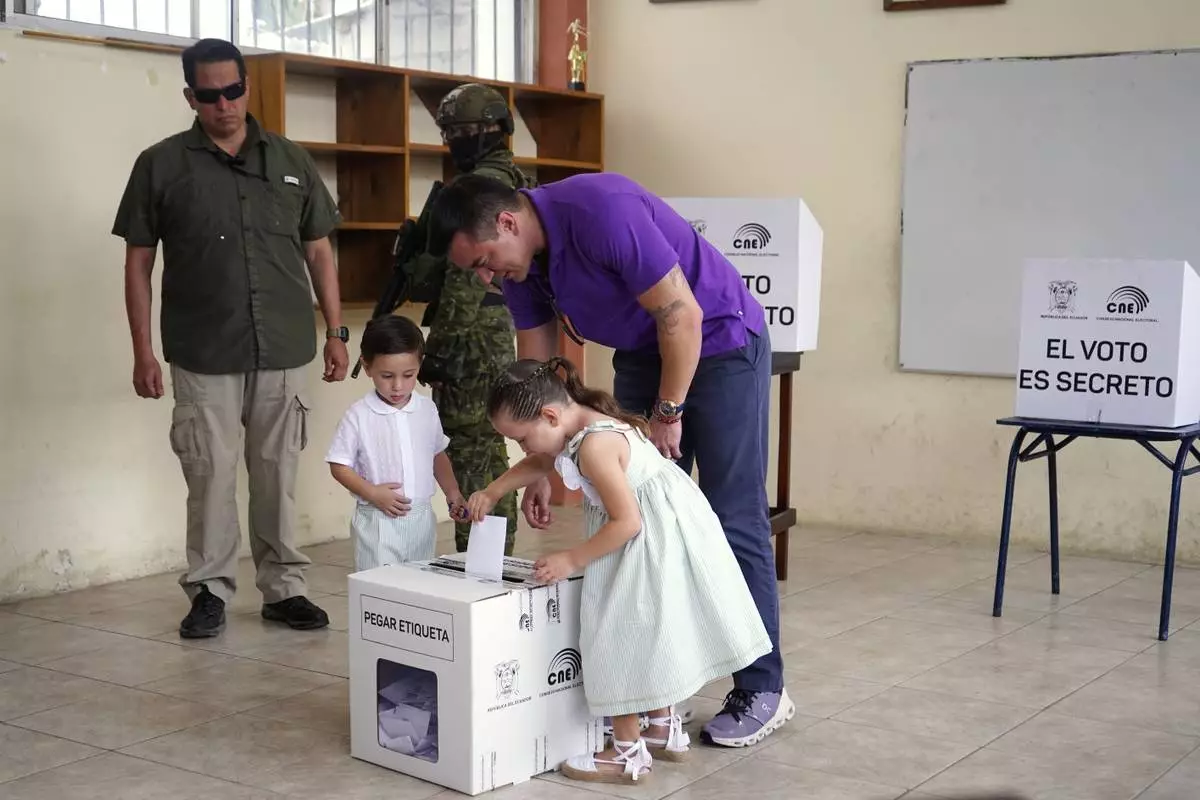
Incumbent President Daniel Noboa casts his vote, accompanied by his children, in the presidential election runoff in Olon, Ecuador, Sunday, April 13, 2025. (AP Photo)
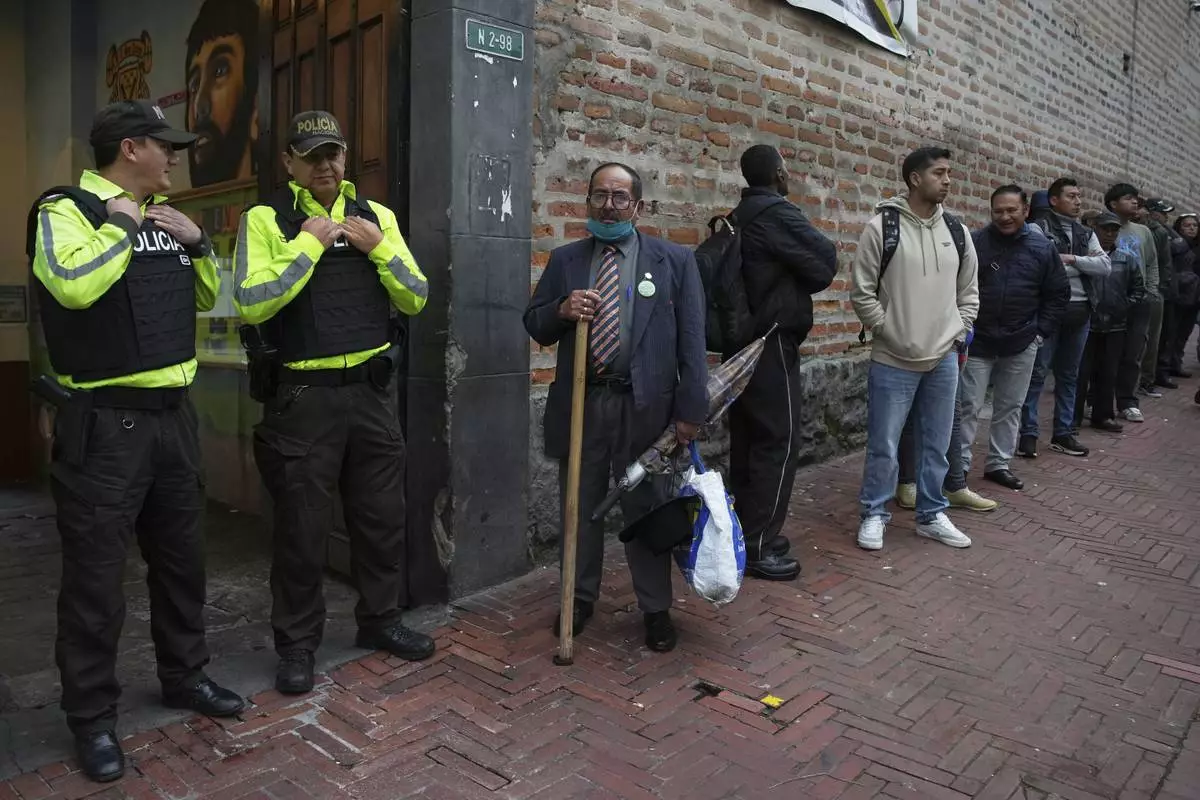
Voters line up at a polling station during the presidential election runoff in Quito, Ecuador, Sunday, April 13, 2025. (AP Photo/Carlos Noriega)
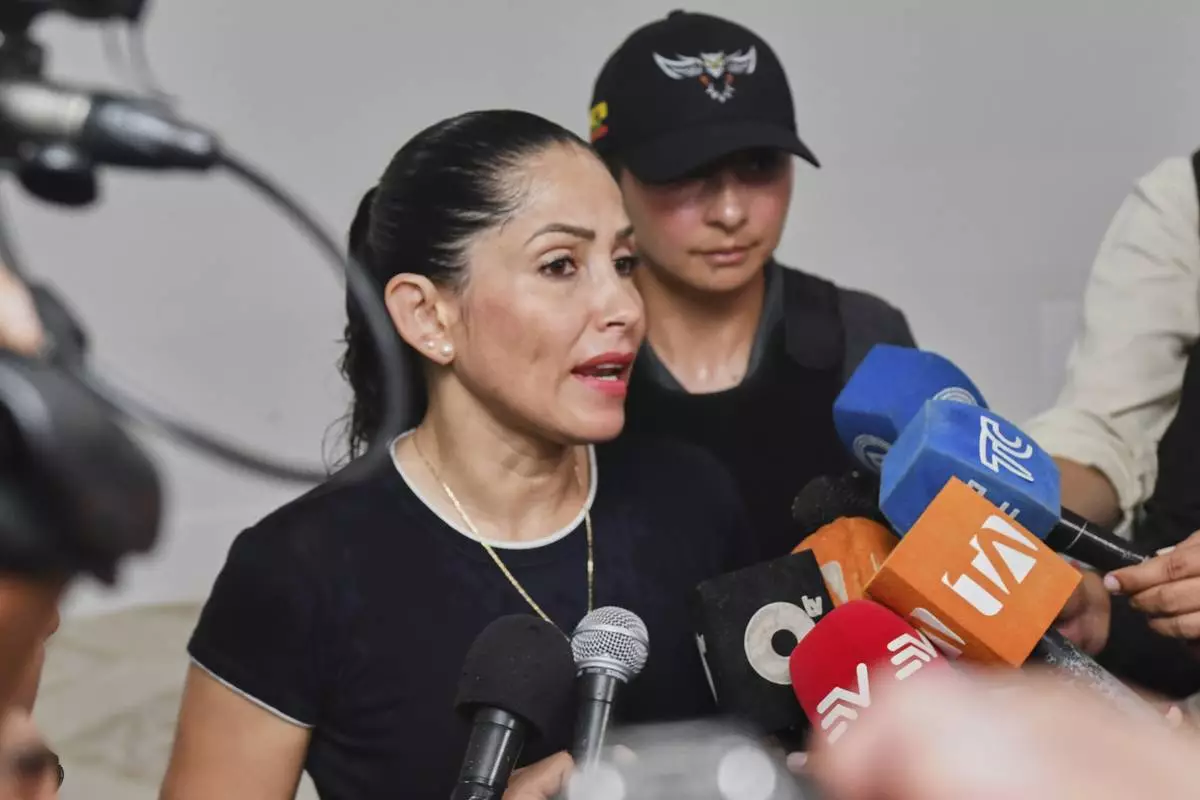
Luisa Gonzalez, presidential candidate from the Citizen Revolution party, speaks after voting in the presidential election runoff in Canuto, Ecuador, Sunday, April 13, 2025. (AP Photo/Ariel Ochoa)
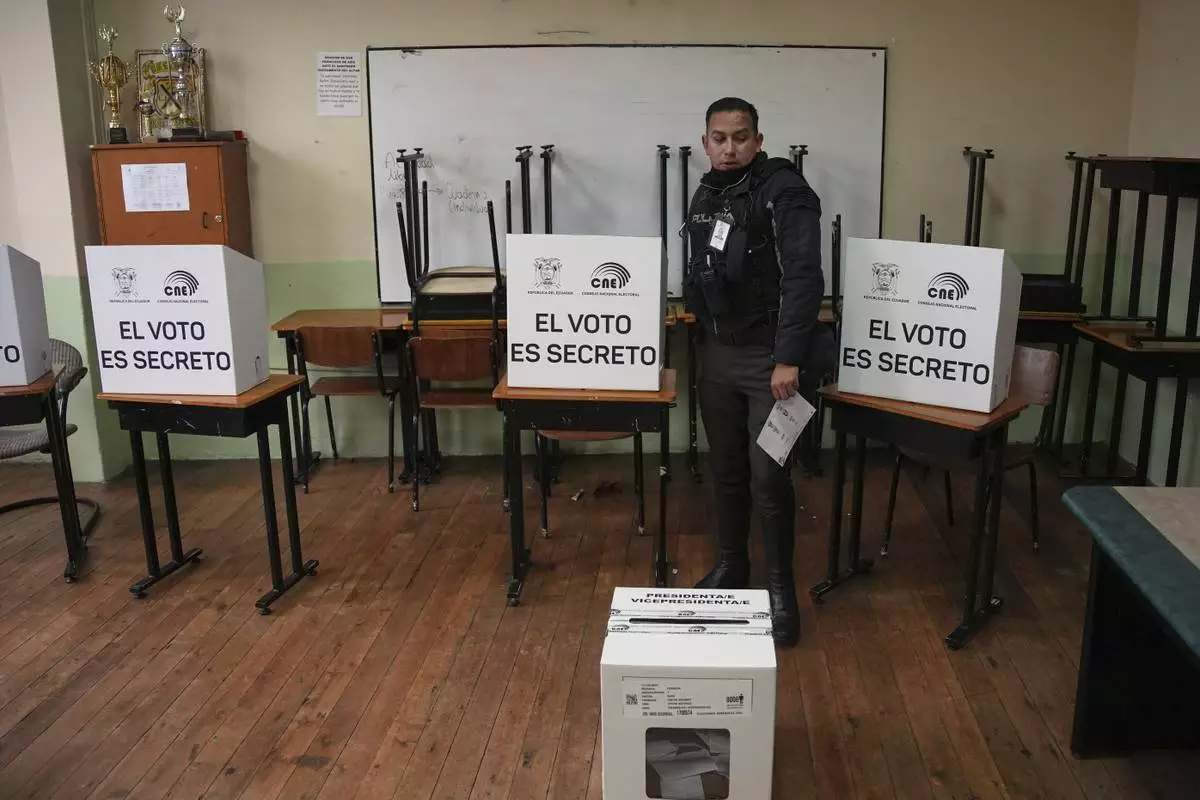
A police officer holds his ballot during the presidential election runoff in Quito, Ecuador, Sunday, April 13, 2025. (AP Photo/Carlos Noriega)
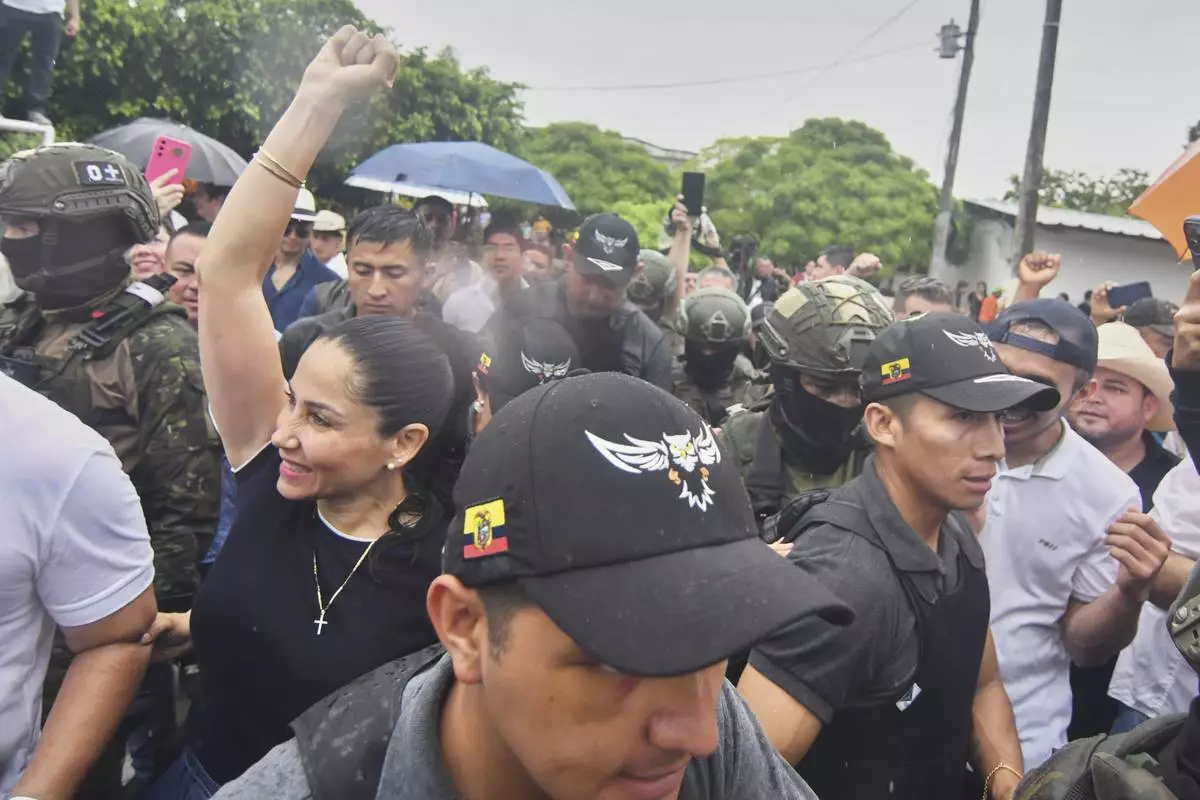
Luisa Gonzalez, presidential candidate from the Citizen Revolution party, waves to supporters after voting in the presidential election runoff in Canuto, Ecuador, Sunday, April 13, 2025. (AP Photo/Ariel Ochoa)
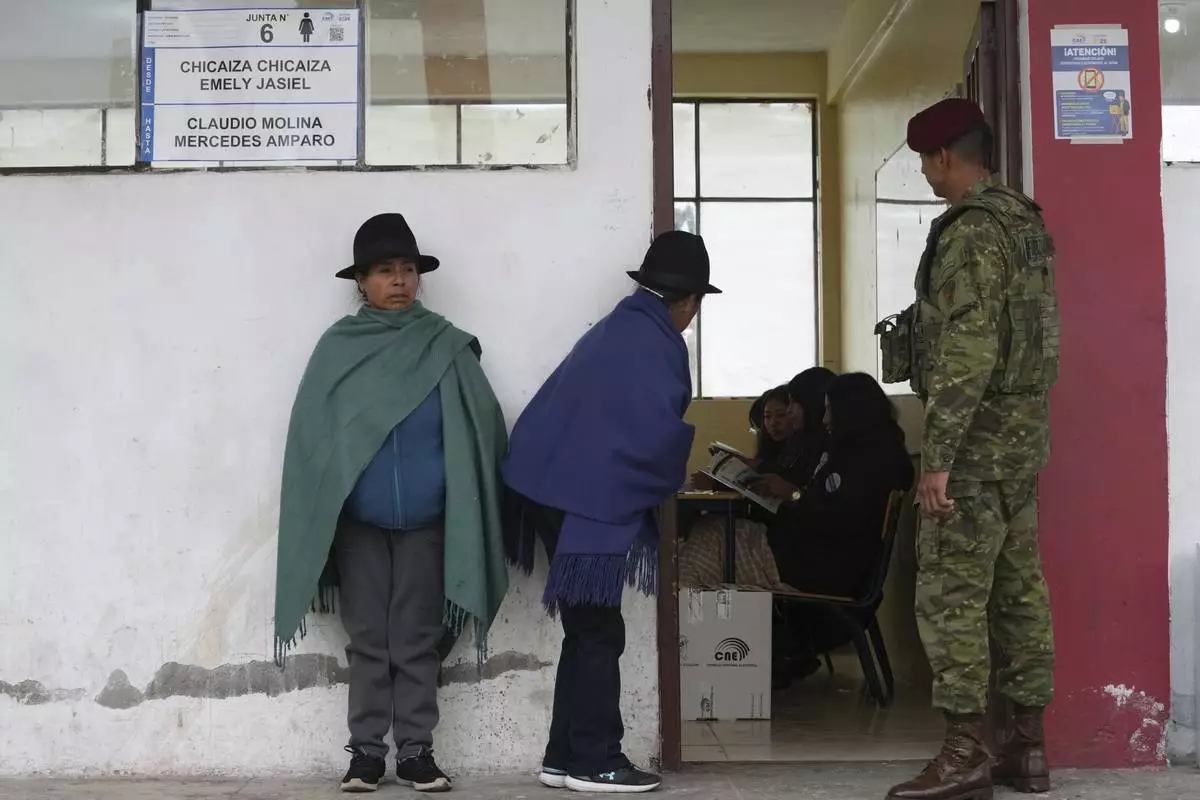
Women line up to vote in the presidential election runoff in Latacunga, Ecuador. Sunday, April 13, 2025. (AP Photo/Dolores Ochoa)
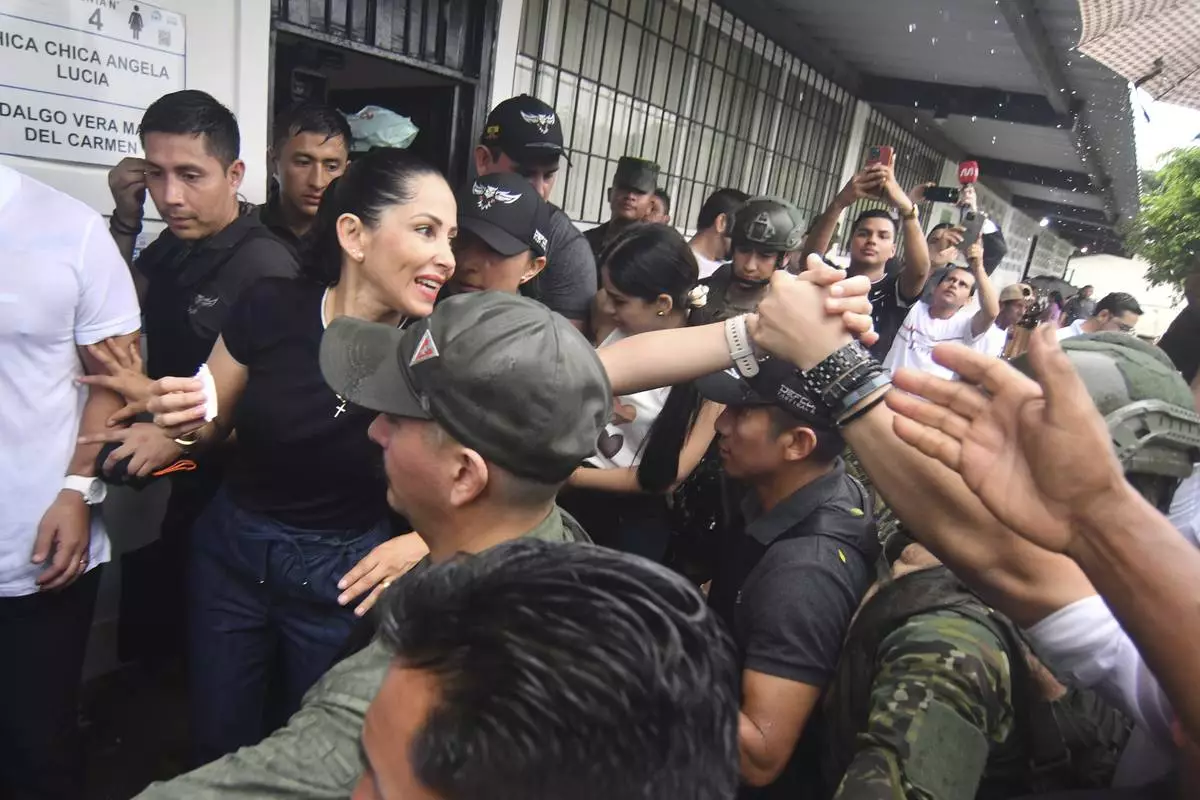
Luisa Gonzalez, presidential candidate from the Citizen Revolution party, greets supporters after voting in the presidential election runoff in Canuto, Ecuador, Sunday, April 13, 2025. (AP Photo/Ariel Ochoa)
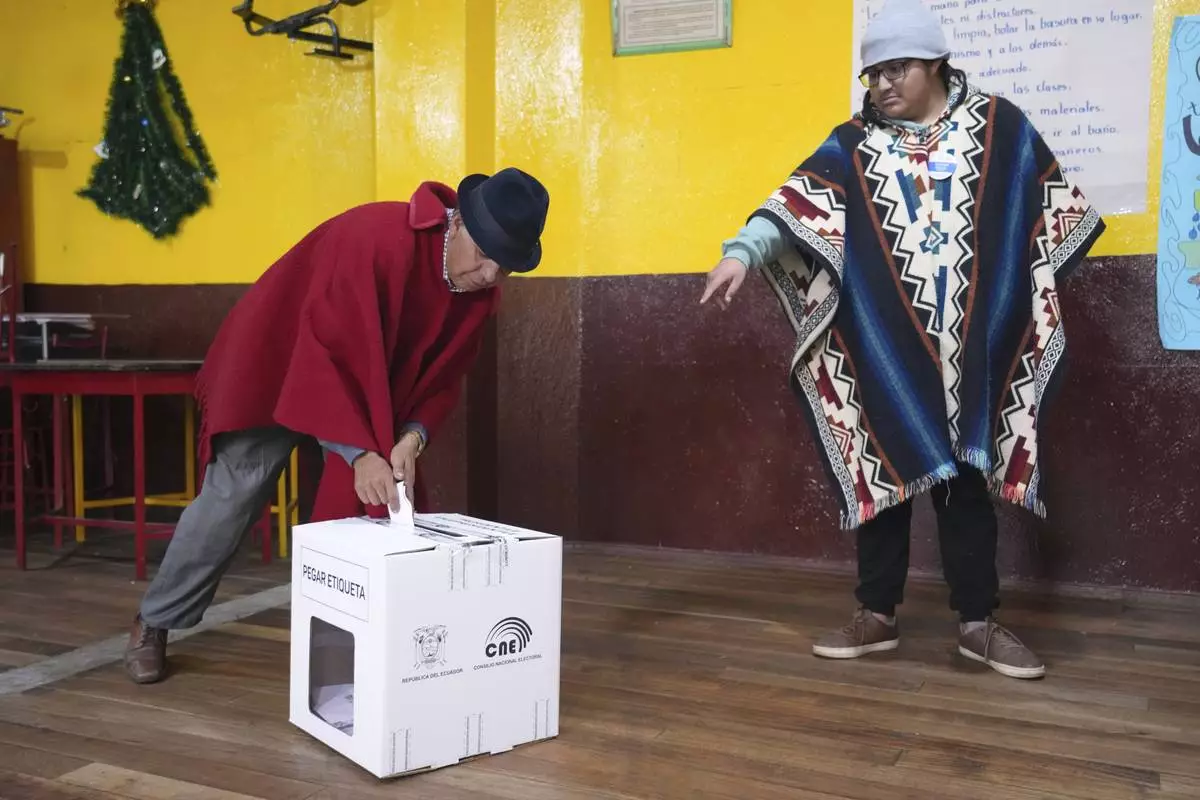
A man votes in the presidential election runoff in Latacunga, Ecuador. Sunday, April 13, 2025. (AP Photo/Dolores Ochoa)
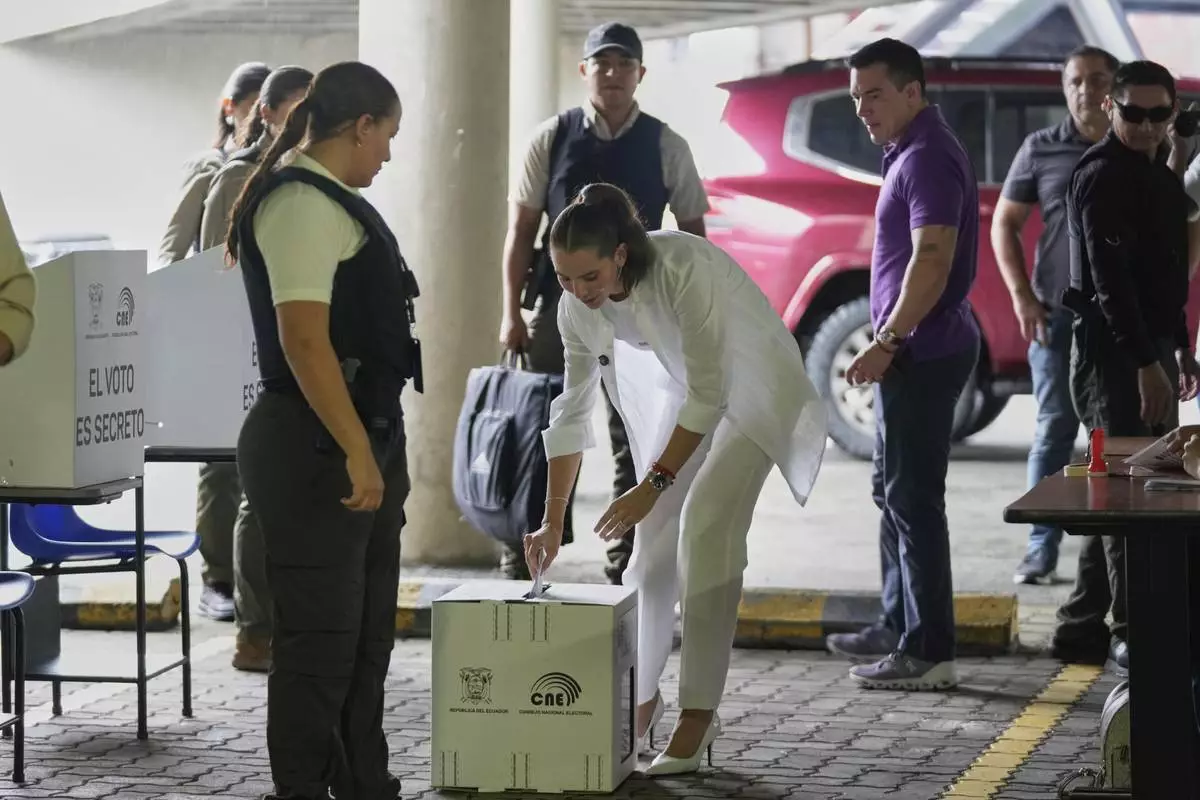
Incumbent President Daniel Noboa watches as his wife, Lavinia Valbonesi, votes in the presidential election runoff in Guayaquil, Ecuador, Sunday, April 13, 2025. (AP Photo/Fernando Vergara)
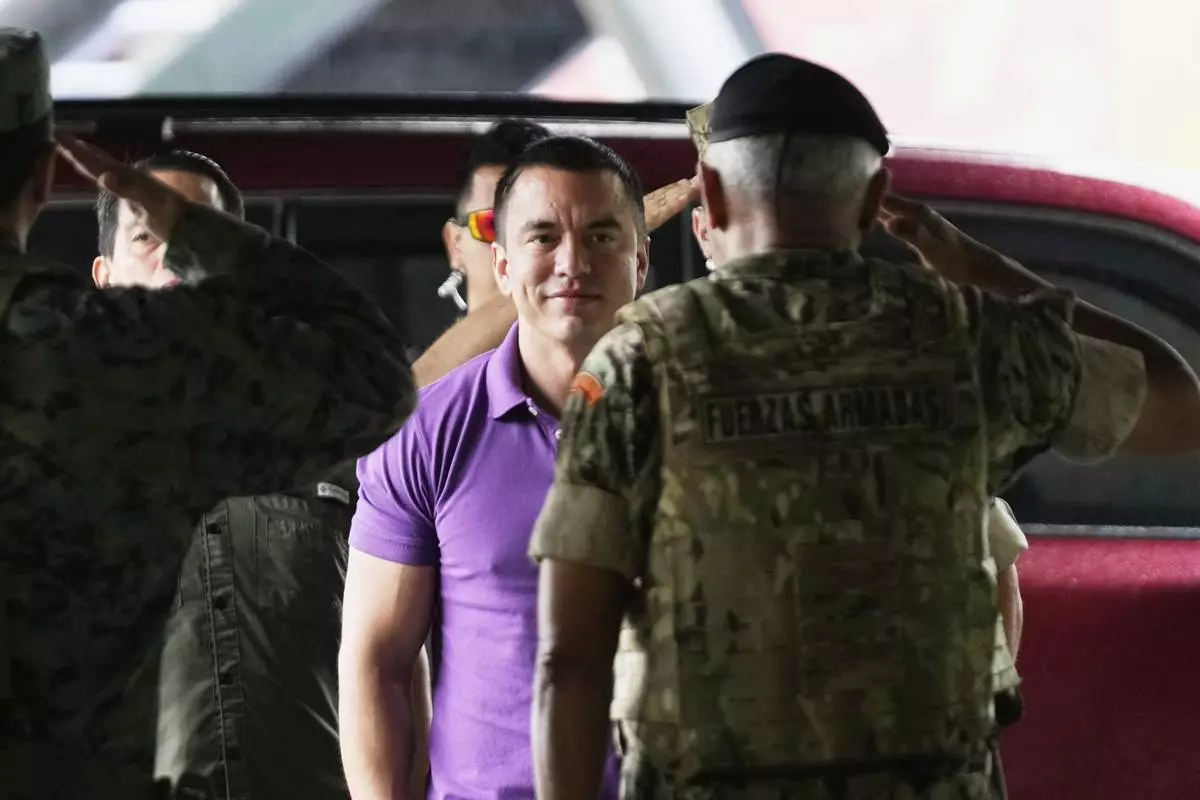
Incumbent President Daniel Noboa arrives to accompany his wife, Lavinia Valbonesi, to the polls for the presidential election runoff in Guayaquil, Ecuador, Sunday, April 13, 2025.(AP Photo/Fernando Vergara)
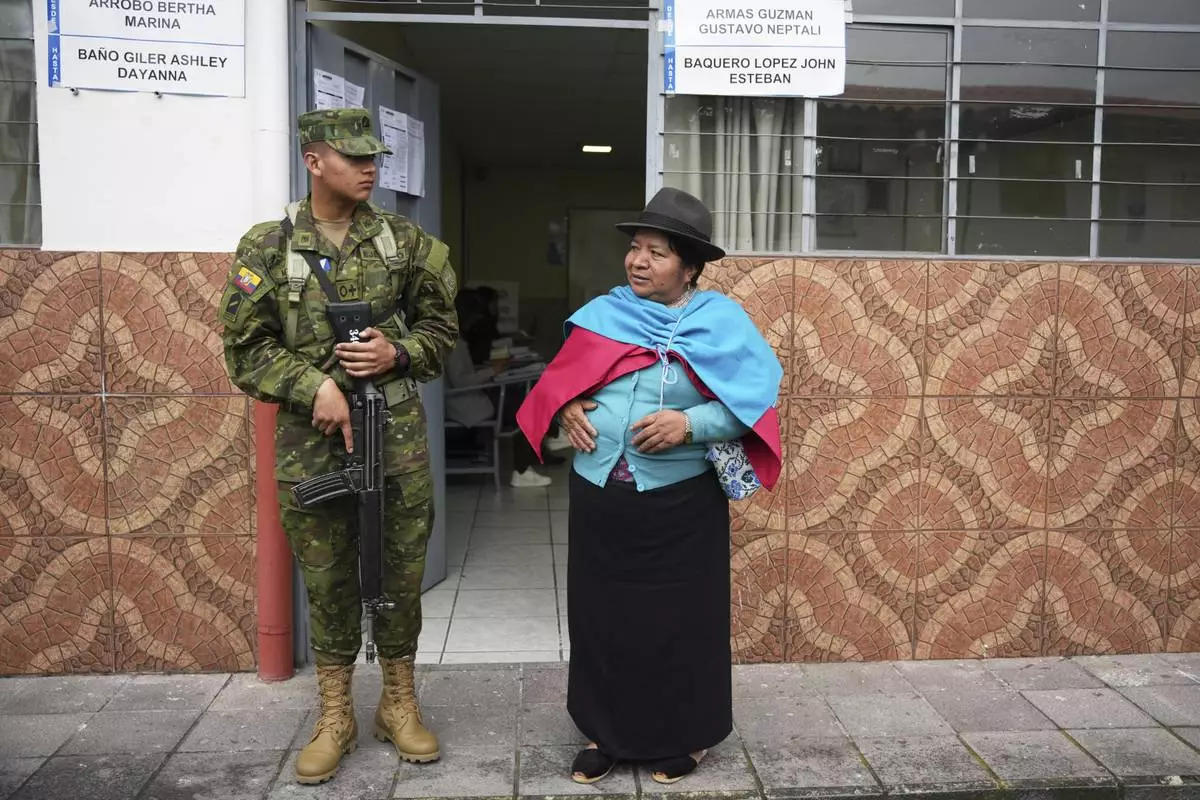
A voter stands next to a soldier guarding a polling station during the presidential election runoff in Quito, Ecuador, Sunday, April 13, 2025. (AP Photo/Carlos Noriega)
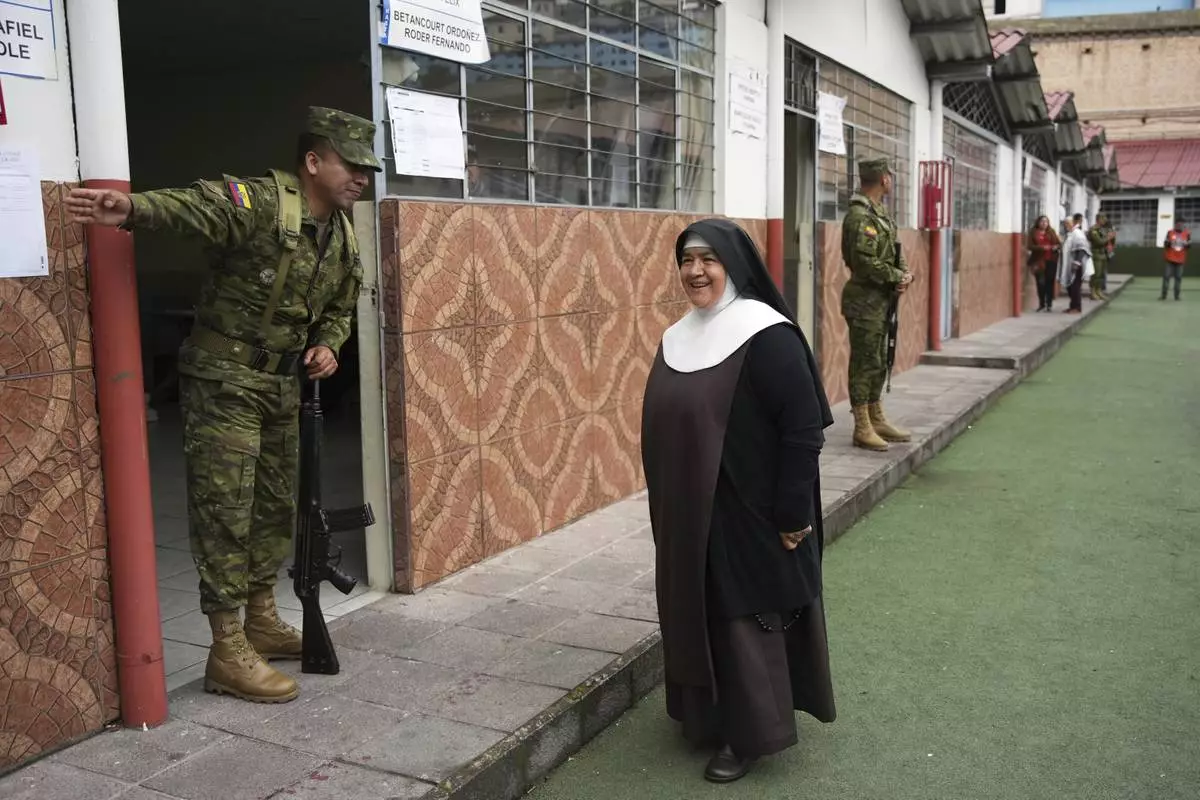
A soldier directs a nun to her polling station during the presidential election runoff in Quito, Ecuador, Sunday, April 13, 2025. (AP Photo/Carlos Noriega)
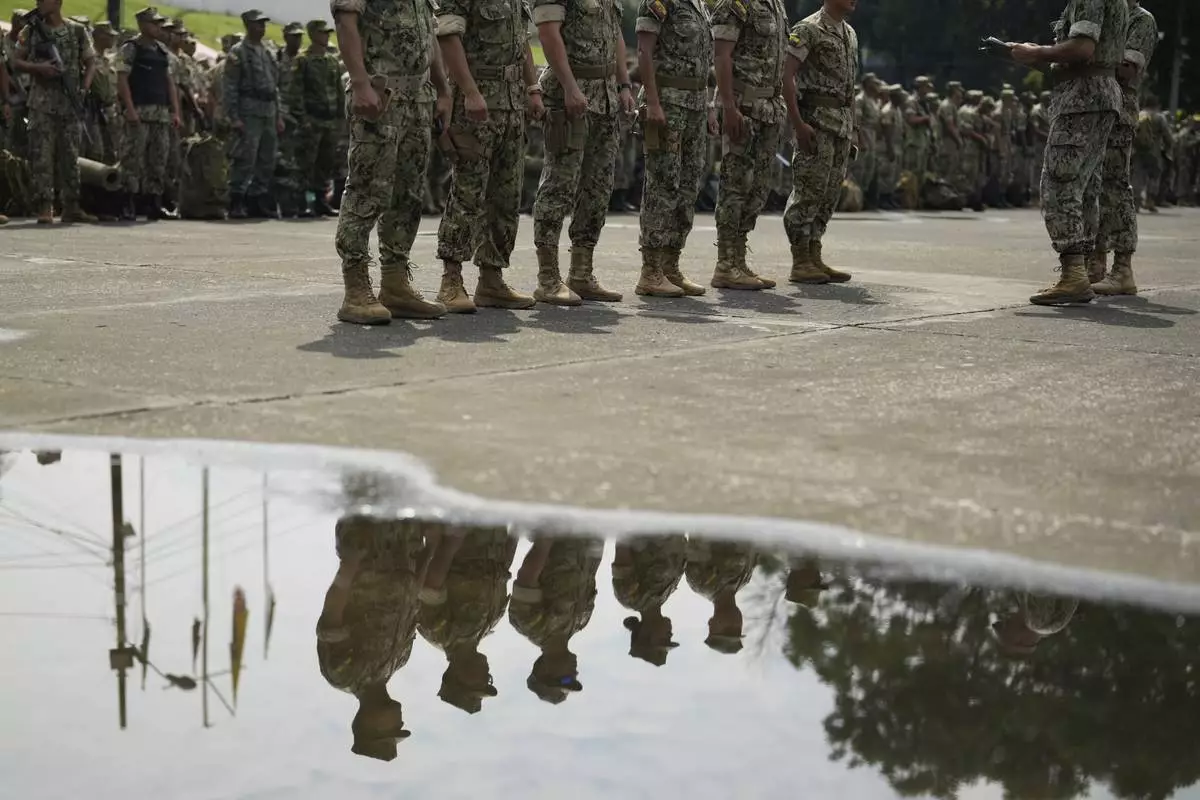
Navy soldiers and reservists stand in formation before heading out to guard polling stations in preparation for Sunday's presidential runoff election, in Guayaquil, Ecuador, Saturday, April 12, 2025. (AP Photo/Fernando Vergara)
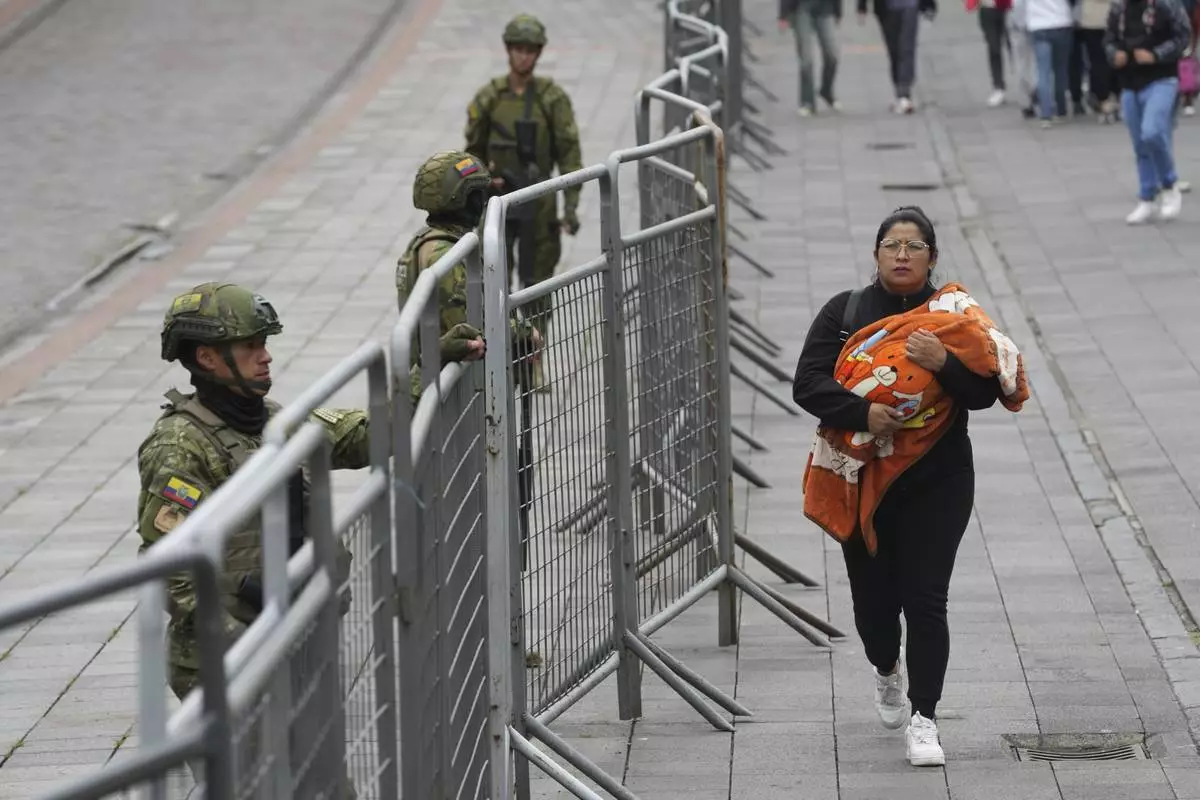
Soldiers stand behind fences placed around the Government Palace in Quito, Ecuador, Friday, April 11, 2025. Ecuadoreans go to the polls on April 13 to elect a new president. (AP Photo/Dolores Ochoa)
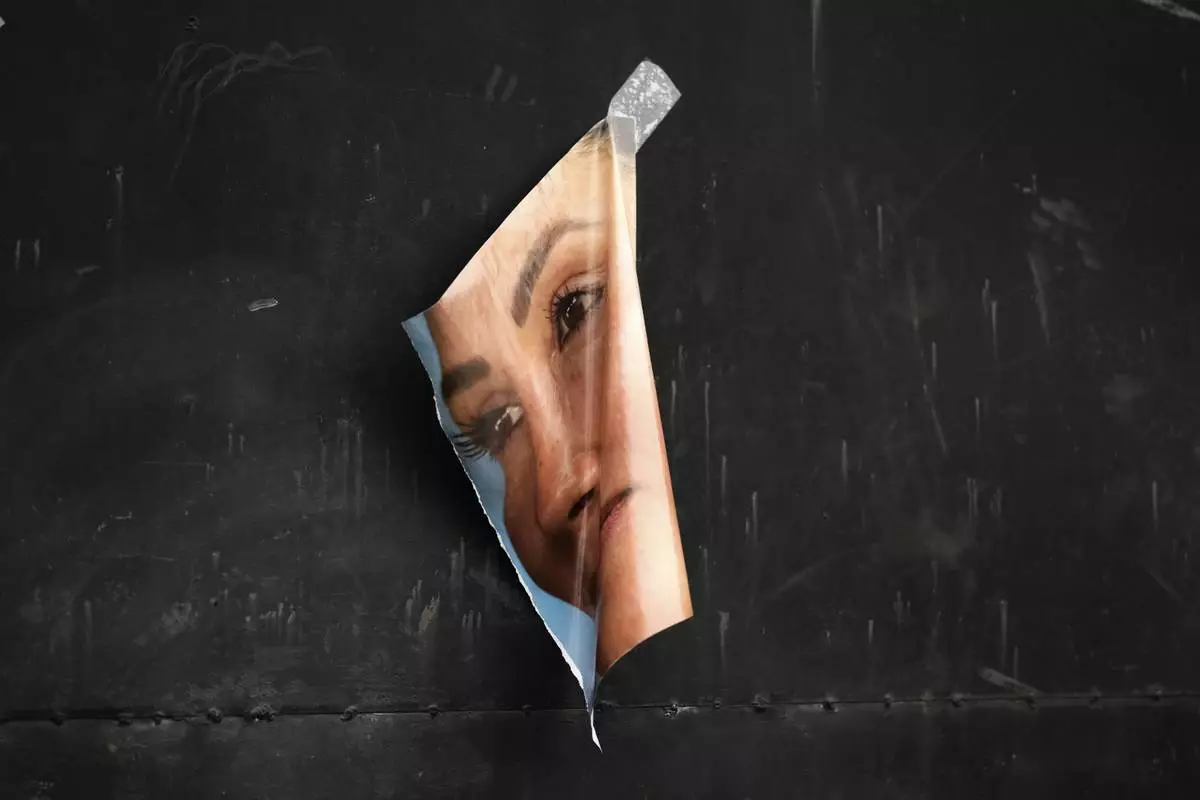
A campaign poster of Luisa Gonzalez, presidential candidate for the Citizen Revolution party, hangs by a piece of tape on a wall in Guayaquil, Ecuador, Friday, April 11, 2025. Ecuadoreans go to the polls on April 13 to elect a new president. (AP Photo/Fernando Vergara)
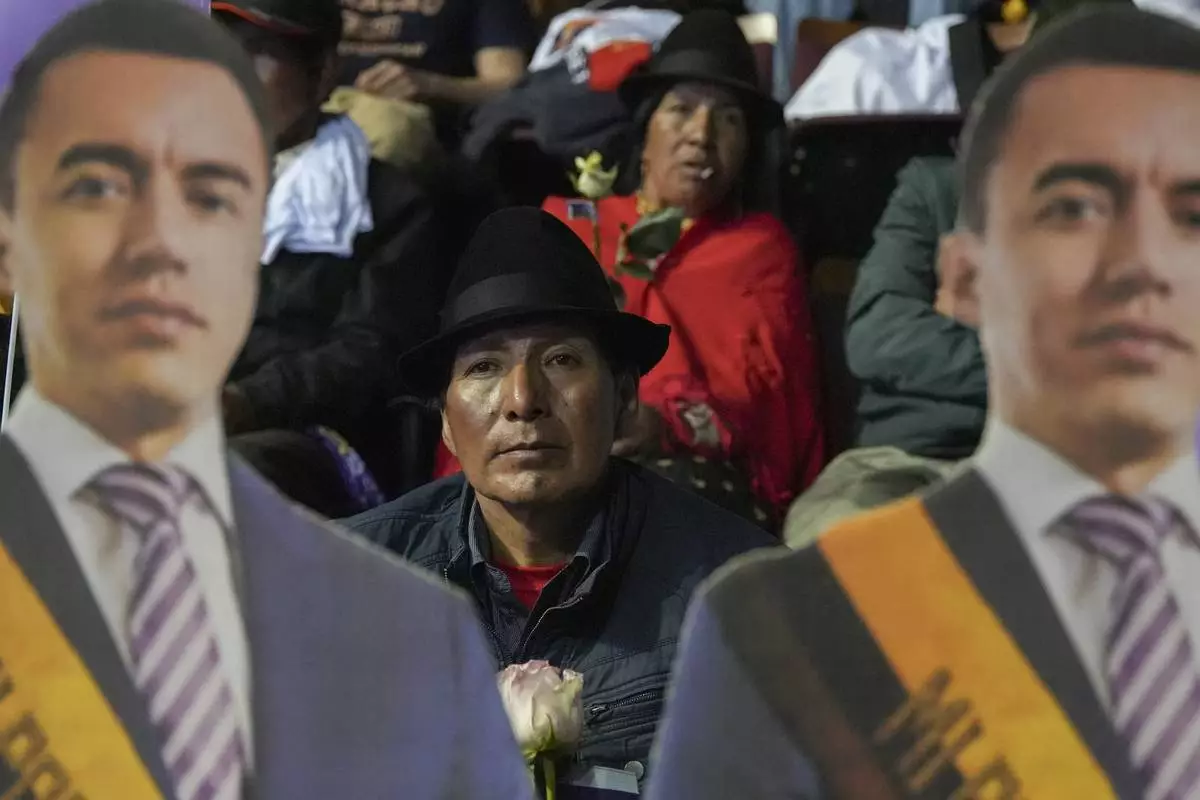
Supporters of incumbent presidential candidate Daniel Noboa cheer him on during a campaign rally in Quito, Ecuador, Wednesday, April 9, 2025. (AP Photo/Carlos Noriega)
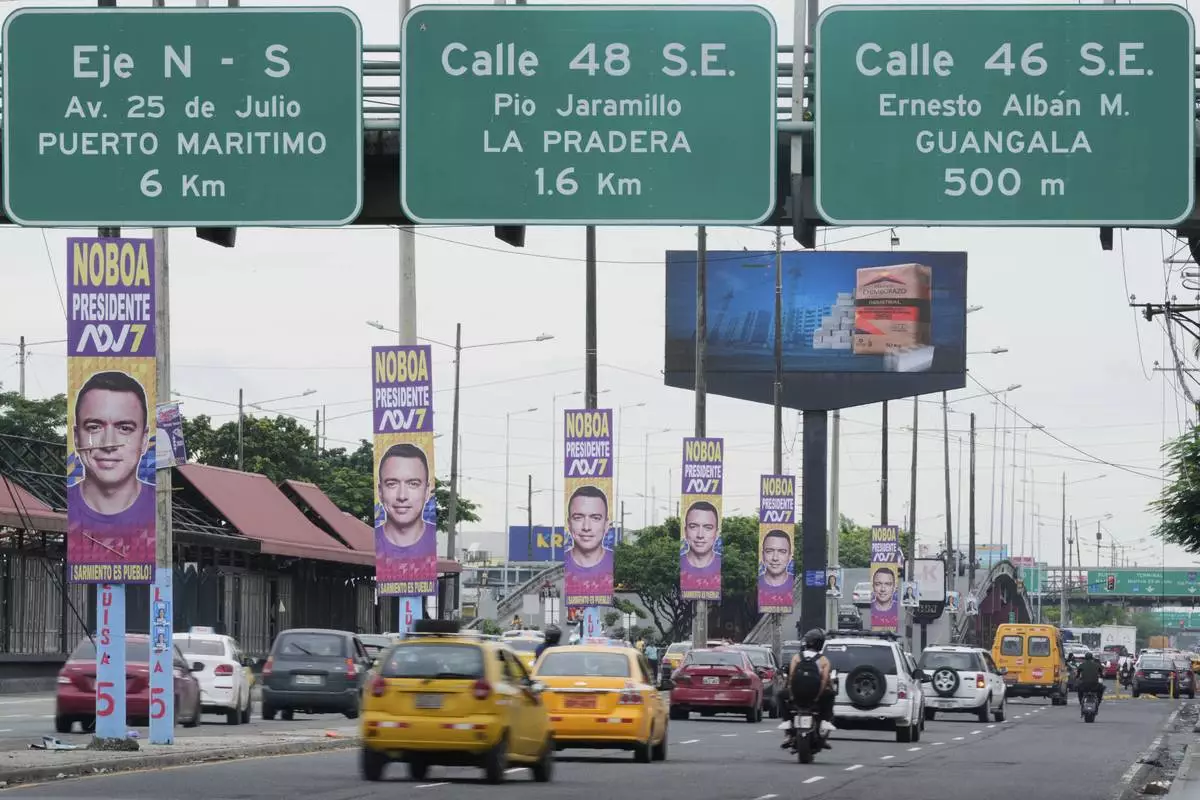
Posters of incumbent presidential candidate Daniel Noboa cover street poles in Guayaquil, Ecuador, Friday, April 11, 2025. Ecuadoreans go to the polls on April 13 to elect a new president. (AP Photo/Fernando Vergara)
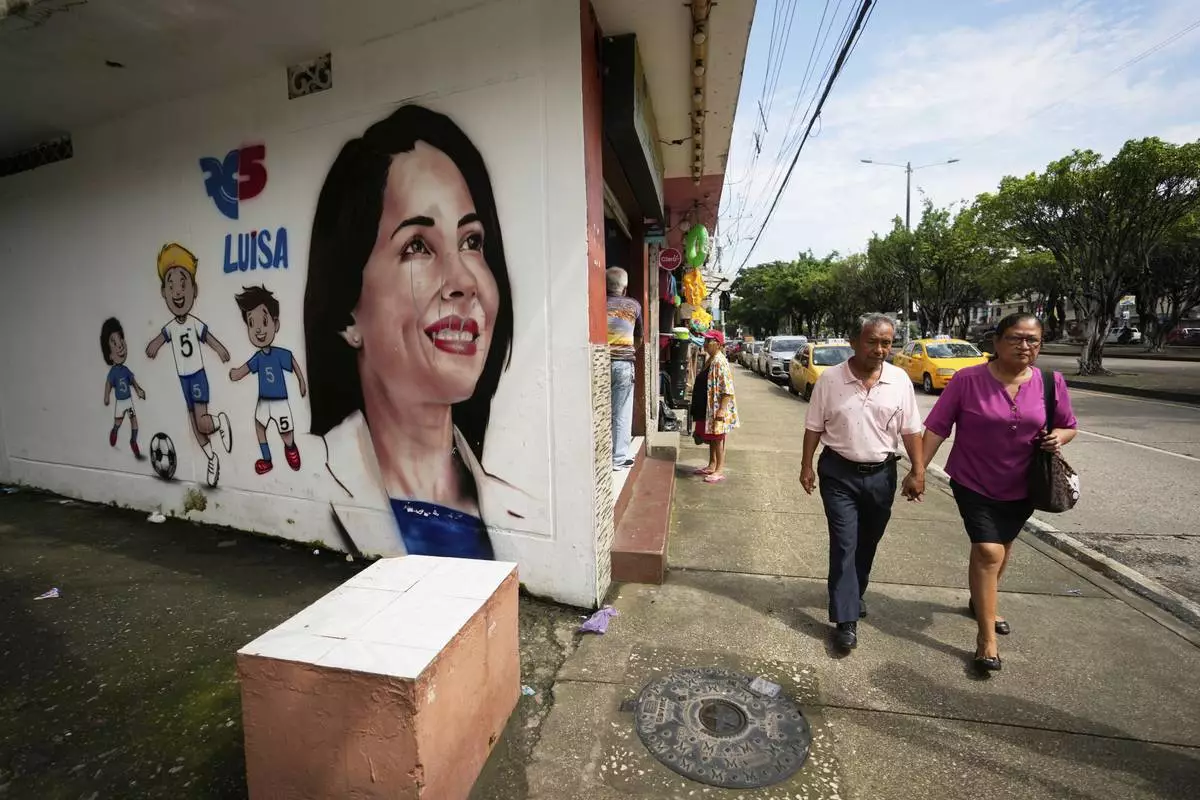
A mural of Luisa Gonzalez, presidential candidate for the Citizen Revolution party, covers a wall in Guayaquil, Ecuador, Thursday, April 10, 2025. Ecuadoreans go to the polls on April 13 to elect a new president. (AP Photo/Fernando Vergara)
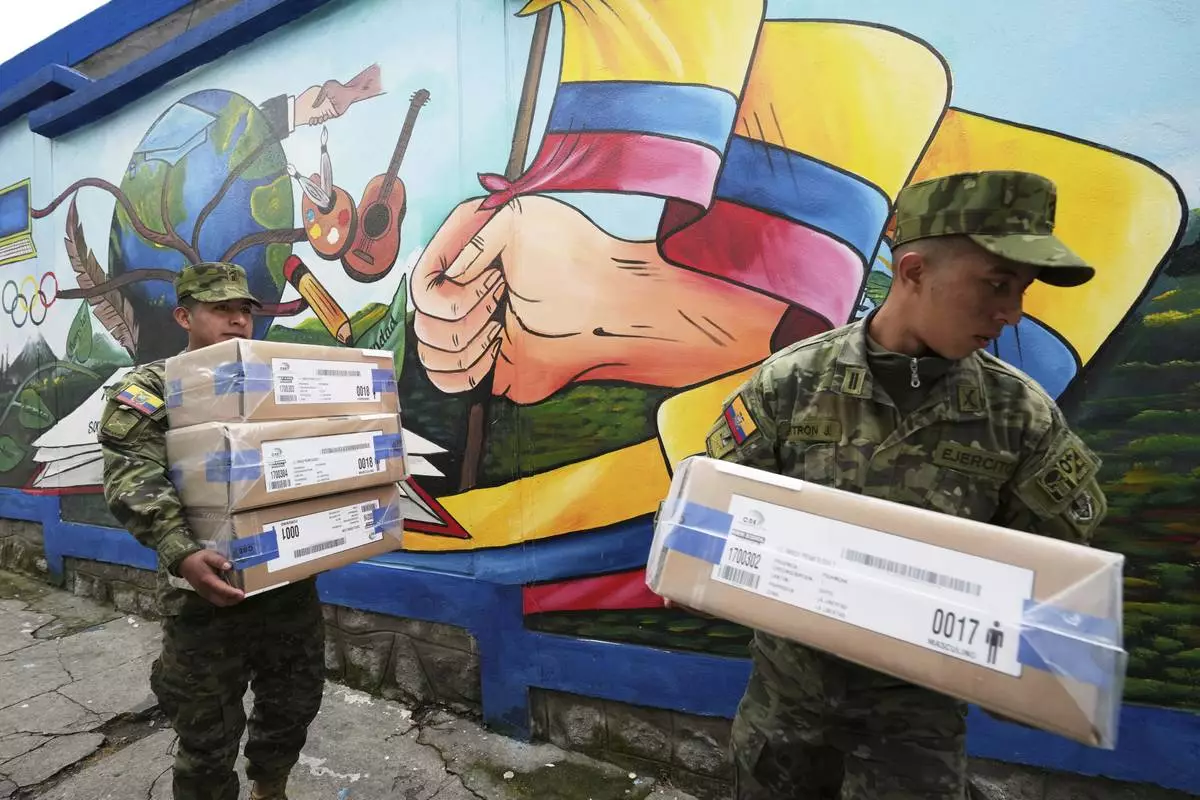
Army soldiers carry electoral kits at a polling station in preparation for Sunday's presidential runoff election, in Quito, Ecuador, Saturday, April 12, 2025. (AP Photo/Dolores Ochoa)
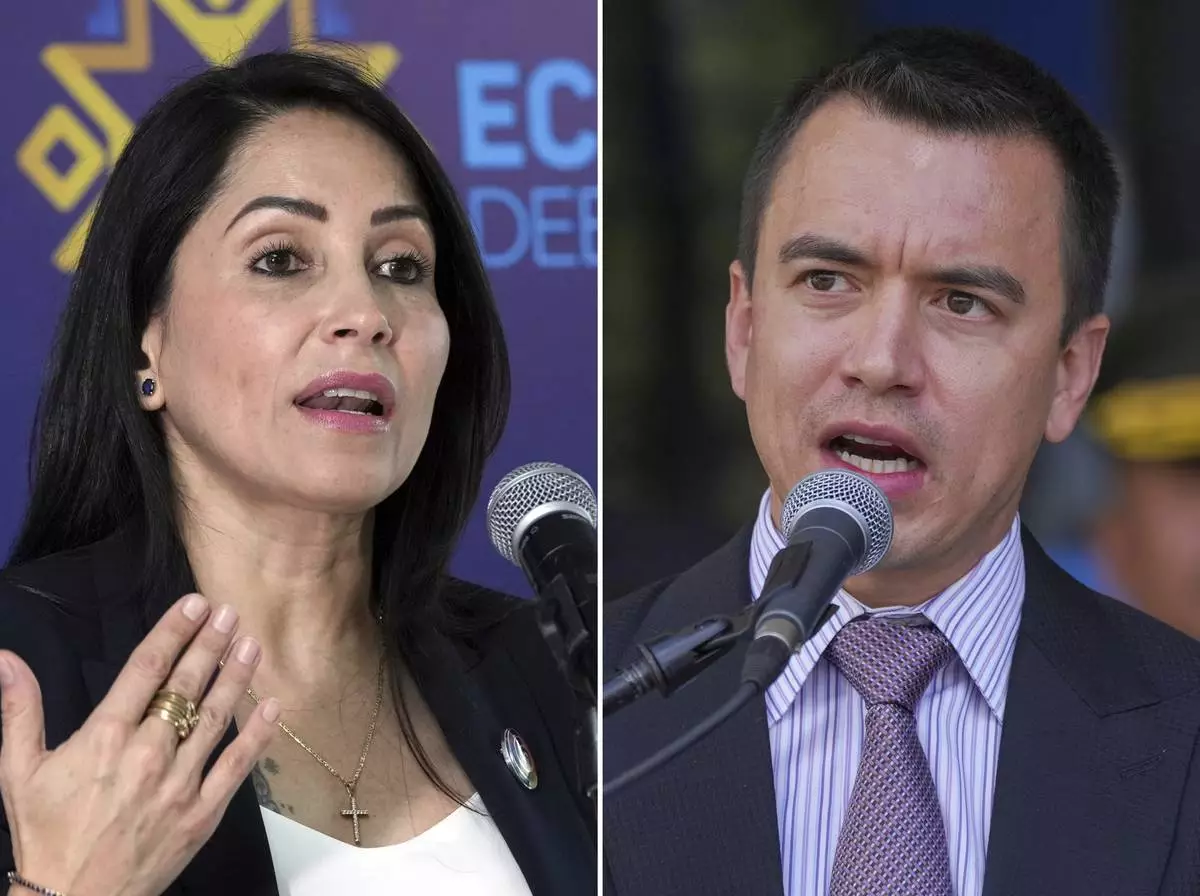
FILES - This combo shows Luisa Gonzalez, presidential candidate from the Citizen Revolution party, left, and Ecuador's President Daniel Noboa, speaking at separate events in Quito, Ecuador on Jan. 19, 2025 and Jan. 22, 2024. (AP Photo/Dolores Ochoa, Files)





